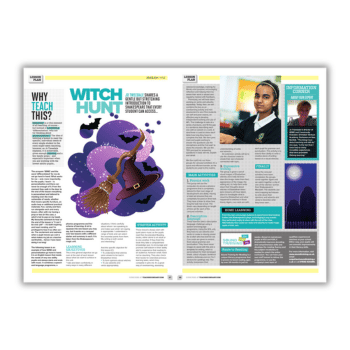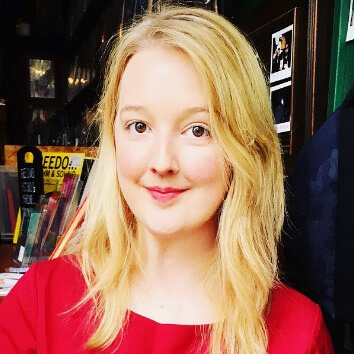Is Our School System Failing Dyslexic Students?

Stringent spelling and punctuation requirements for exams are limiting achievement for dyslexic children, says Amber Lee Dodd…

I’m going to let you in on a secret. At school I hated reading. Not because I felt books were boring but because, to me, they were the very real monsters under the bed.
For many people with dyslexia, reading and writing can be a very real fear. And my fear was exacerbated by falling behind at school.
Early on in my education I was labelled a student with special needs. But what my special needs were, nobody was completely sure. Despite testing and teachers’ assessments, my dyslexia went undiagnosed.
Instead, I was whispered about as “unteachable”, and made to sit at the back of the class with adapted work and attend twice weekly special needs classes.
It was down to my parents – both teachers – to take my education in hand, and I slowly began to improve at school.
By Y6 I started impressing my teachers with my creative writing. I was encouraged to read and write more stories.
My vocabulary improved, my confidence returned and my fears faded. I went into my English SATs with the ability to express what I thought, despite my inability to spell all the words or punctuate all the sentences perfectly.
Being able to pass my Y6 SATs dictated quite a lot of my life. It put me in higher sets in secondary school and showed my new teachers that, despite my continuing issues with handwriting, spelling and punctuation, I wasn’t unteachable. And it gave me confidence. But I still had struggles.
There was a memorable screaming match down a corridor when a teacher accused me of cheating on my English paper.
It wasn’t possible, she insisted, that I had written the content of my own essay when my handwriting looked like a drunken spider had run through ink, I’d spelt Shakespeare six different ways and hadn’t mastered quite where a full stop belonged.
It was at university things really changed though. I was finally diagnosed with dyslexia, dyspraxia and problems with numbers. I went on to graduate with a 2:1 in scriptwriting from UEA.
After working several jobs, including a learning support assistant role, I took a masters in creative writing, where I gained a distinction, finished a novel and won my first publishing deal.
Today, I work as a children’s author, I travel the country speaking at schools and teaching creative writing.
Does the dyslexia hinder me? Sometimes. There are plenty of struggles I continue to have as an adult. But dyslexia has also shaped the person I am. It’s helped me develop tools such as creative thinking and problem solving, persistence, adaptability and the ability to embrace constructive criticism.
In short, dyslexia has given me all the skills to become an author. When I talk at schools, this is what I try to communicate. And I’ve had the privilege of meeting dyslexic students who are also using these talents to flourish, often under the guidance of specialist learning support.
But not all students are so lucky. Teachers and TAs are facing an uphill battle against far more stringent spelling and punctuation requirements for exams. These set up many dyslexic students, especially those who have not been diagnosed, to fail.
When I worked as a learning support assistant I saw first-hand the damage this does. It produces students without confidence, ambition or self-worth, as well as creating mental health problems and behavioural issues.
Some 27% of students with SEN support had fixed-term exclusion last year. Many of those students have dyslexia and other learning disabilities.
Then there’s the startling fact that that the highest percentage of young dyslexic adults in London are found at both Central St Martins Art College and the Young Offenders Institute. Many students with dyslexia are clearly being failed by our education system.
Today, I would be one of those students. I would have failed my SATs because I wouldn’t have met the current requirements for spelling and punctuation.
I would have gone into secondary education set up for failure and I would never have dreamed of going to university.
I doubt I would have had the confidence to become an author. I would probably still be the girl at the back of the class thinking she was unteachable.
Amber Lee Dodd is an award-winning author. Her first book, We Are Giants, was nominated for 10 awards. Her second book, Lightning Chase Me Home, stars a dyslexic protagonist. Browse more resources for Dyslexia Awareness Week.










